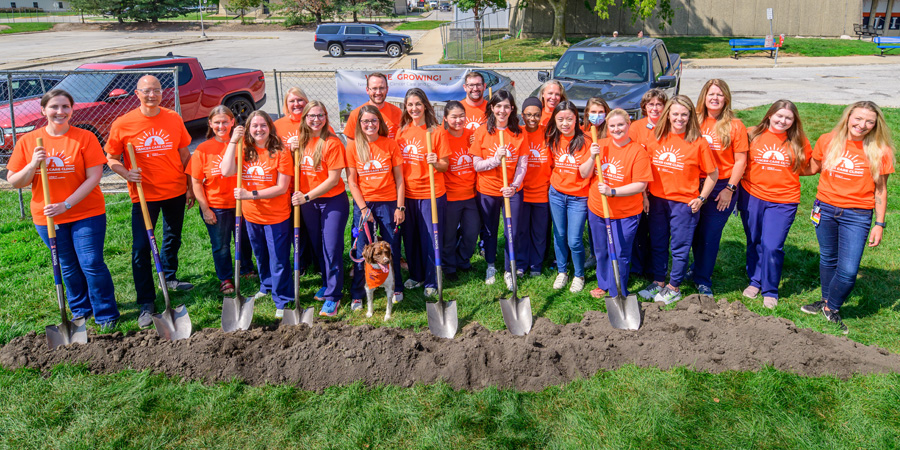This message will appear in the Chicago Veterinary Medical Association Bulletin.
The AVMA recently shared some very good news from its 2022 Survey of Graduating Seniors. This annual online survey collects information on student demographics, plans for employment or advanced education, educational debt, and other variables from seniors at all U.S. veterinary schools.
The latest survey shows that the debt-to-income ratio for last year’s graduates was 1.4, down from a high of 2.3 in 2018 and at a low not seen since 2005. [See the graph here.]
I asked some of our soon-to-be graduates for their thoughts on these findings.
Jason Szumski, president of our Class of 2023 and former student chapter president of the Veterinary Business Management Association, agrees that the rise in starting salaries is good news. However, with the mean student debt at graduation hovering around $150,000, he still sees a lot of room for improvement.
“We [students] do not get enough preparation for this mountain of debt that we take on to help animals,” he says. “There are some good resources out there, but they need to be talked about more at a younger age to make sure people [entering the veterinary profession] understand that this amount of debt is significant.”
Debt Impacts First Job Choice
The data reported in the JAVMA article show that new graduates taking positions within corporate-owned practices had a mean debt about $10,000 higher than those entering privately owned practices. The article does not draw conclusions from those data, but Szumski had strong feelings about the potential for financial pressures to influence graduates’ choice of a first job.
“With how competitive the hiring market is right now, there is definitely potential for a financially rewarding position after graduation. However, we [new graduates] should be focusing on finding the perfect hospital that fits our wants and needs,” says Szumski.
“I’ve found that the #1 thing new grads want is great mentorship, not the biggest salary. But because the debt-to-income ratio is so significant, educational debt and the ‘highest bidder’ may play a bigger role than it should.”
More Transparency Early On
“Student loan debt has certainly played a role in my job search,” says Val Ivanina, another member of the Class of 2023, “and it has also shaped my future goal of practice ownership.”
A native of Brooklyn, N.Y., Ivanina wants a career in small animal general practice with a focus on canine reproduction/neonatology.
“As an out-of-state student, I find the recent announcement of increased new grad salaries and decreased debt-to-income ratio to be particularly welcome news,” she says. “However, increased salaries are only one part of the solution.”
Like Szumski, she believes there should be more transparency about the financial realities of veterinary school early on. “Students should be counseled on the breadth of career options and vast opportunities available to them as a DVM,” she adds.
In a statement that would likely be endorsed by veterinary students everywhere, Szumski concludes: “Tuition needs to be lower, and more scholarships need to be offered.”
As dean, I am well aware of the harmful impact of educational debt on our students and profession. At the same time, our college budget allocation has been cut every year but one over the past 21 years. Our college has restricted tuition increases to at or below the four-year rolling average of the Consumer Price Index to minimize the impact of the budget cuts on students.
We Can Do More
I am delighted by the news about the diminished financial burden of veterinary graduates. And yet, we can all agree that more needs to be done.
The very popular business elective track at Illinois has provided our students with practical financial strategies to reduce and manage debt and maximize career opportunities. The Employer Participation in Repayment Act, which I highlighted recently, represents a valuable tool for those who hire new graduates to reduce their employees’ debt while deducting the entire amount, up to $5,250 per year, as a business expense.
Our college gained an impressive 70 new scholarships over the course of the recently concluded “With Illinois” campaign. More scholarships would allow us to help even more students.
Thank you to the CVMA and its many generous members who make these scholarships possible and who welcome new graduates into your practices.




